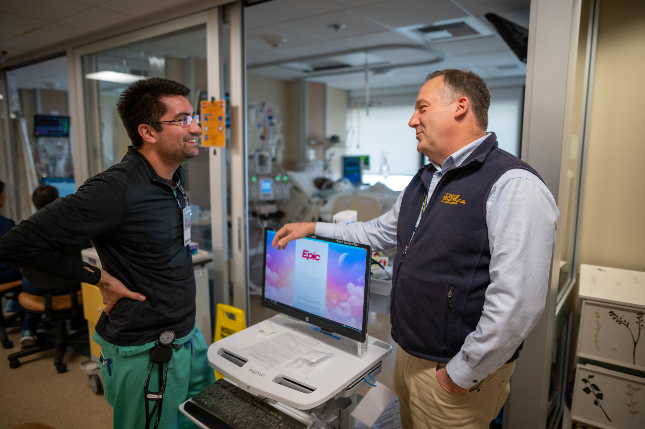Research
UC Davis Lung Center
Among the most common causes of mortality and morbidity in the United States are diseases of the respiratory system, specifically, asthma, lung cancer, emphysema, chronic bronchitis and idiopathic pulmonary fibrosis. The faculty participating in the UC Davis Lung Center work to resolve the disease problems associated with the respiratory system, using a strong interdisciplinary, multidisciplinary approach which integrates basic cellular biology with animal models and clinical applications of therapeutic strategies. The Lung Center serves as the focal point for the large and diverse research community at UC Davis whose interests focus on the respiratory system.

There are over 30 faculty on the UC Davis campus whose research focuses on some aspect of respiratory disease. The faculty is drawn from the School of Medicine, School of Veterinary Medicine, College of Agricultural and Environmental Sciences and the Division of Biological Sciences. Facilities maintained by the group include one of the premier air pollution exposure facilities in the country at the California Primate Research Center, the largest exposure facility for environmental tobacco smoke on the West Coast at the Institute of Toxicology and Environmental Health, and an extensive multidisciplinary Cellular Imaging and Quantitation Facility.
UC Davis Lung Center's research activity is currently organized around ten groups which include:
- Immunology/Infectious Disease
- Epithelial Cell Biology/Cystic Fibrosis
- Interstitial Matrix Biology/Pulmonary Fibrosis
- Inflammations/Airways Hyperreactivity
- Lung Growth and Development/Bronchopulmonary Dysplasia
- Environmental Toxicology/Biomolecular (Metabolic) Mechanisms of Lung Injury
- Carcinogenesis
- Occupational Environmental Medicine/Epidemiology
- Lung Neurobiology/Dyspnea/Asthma
- Pulmonary Circulation
A major component of the UC Davis Lung Center is the training of graduate students and fellows as pulmonary research scientists. This training depends on a strong, in-depth program in a conventional discipline coupled with a broad base in the other disciplines. Because the respiratory system is one of the most complex organ systems in the body, regardless of the perspective, all training is organized to ensure a broad, multidisciplinary base which will promote an understanding of the basic cellular and molecular mechanisms of disease and the physiological and pathobiologic basis of disease processes and the translation of research findings into applicable therapeutic approaches.
For more information on the Lung Center, please call 916-734-3565
